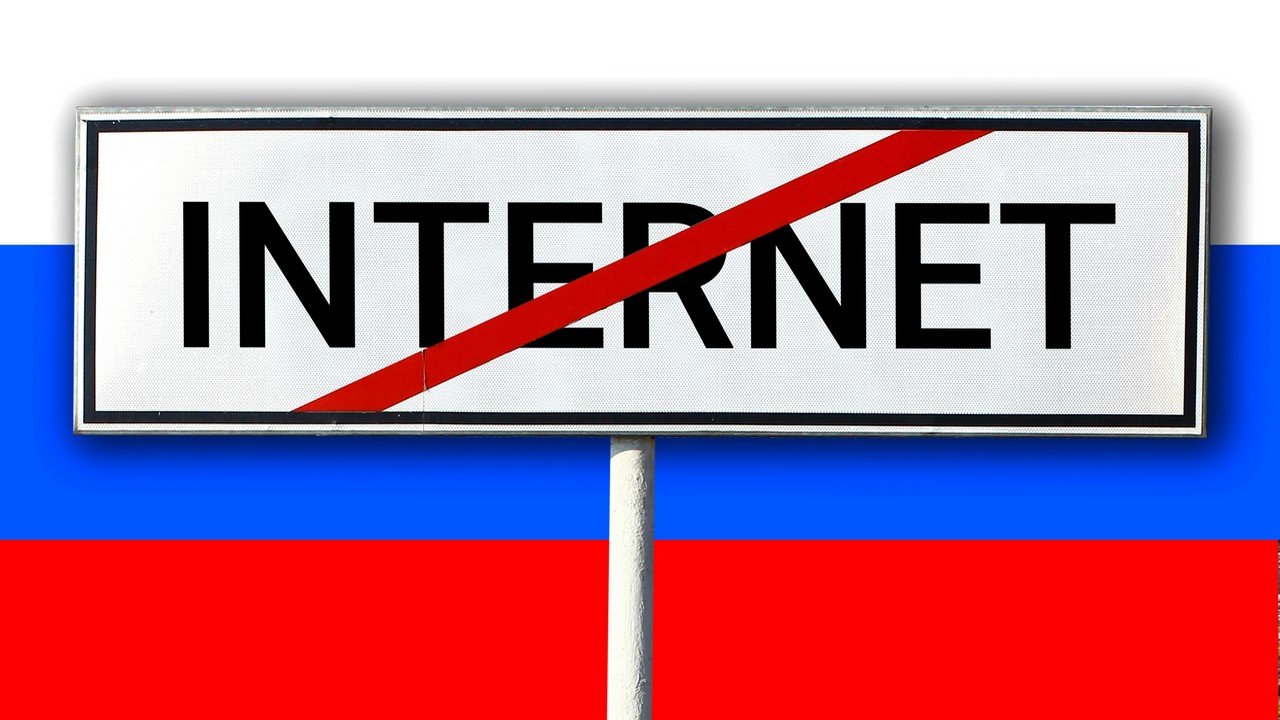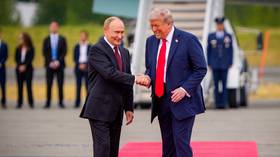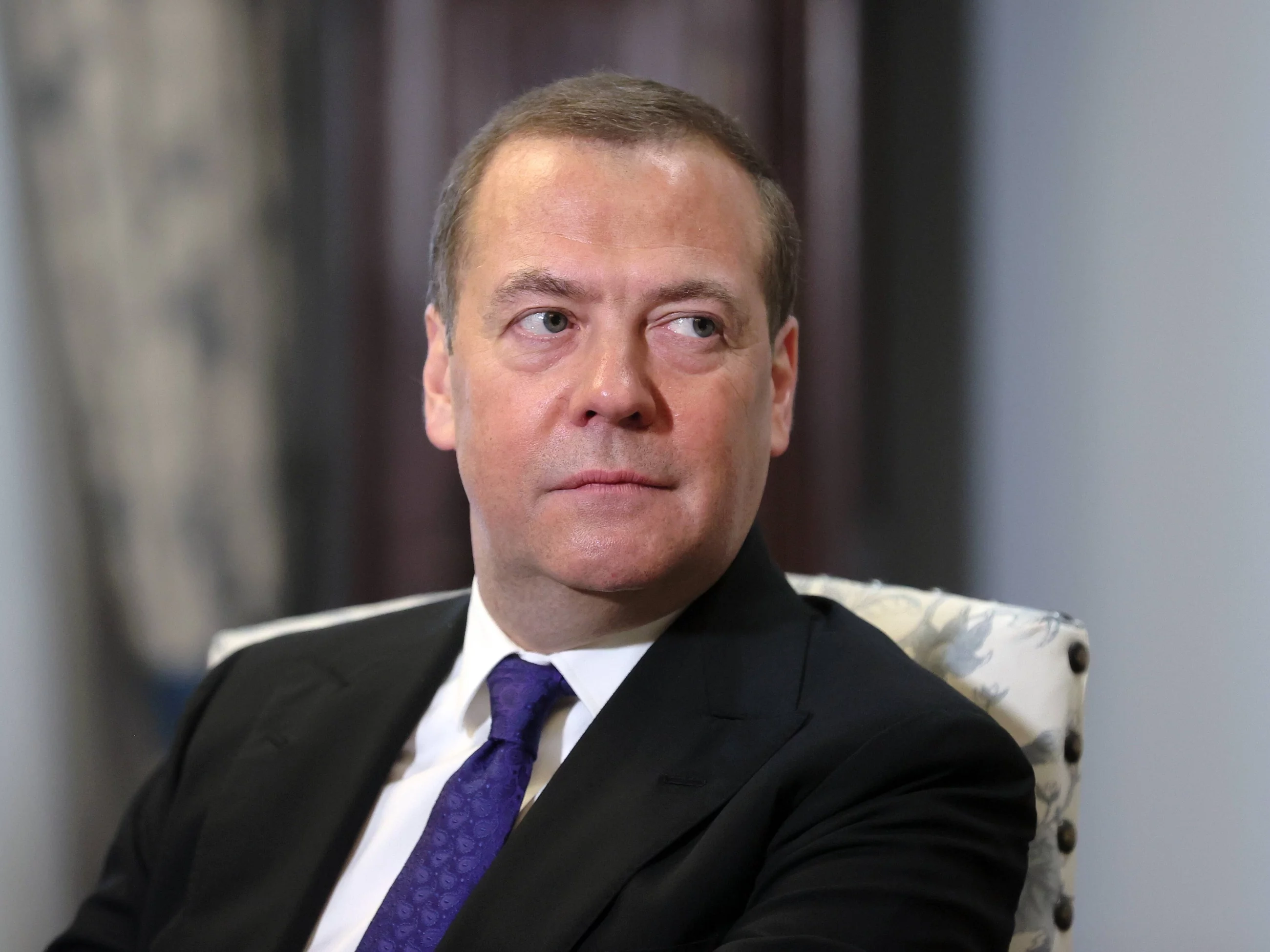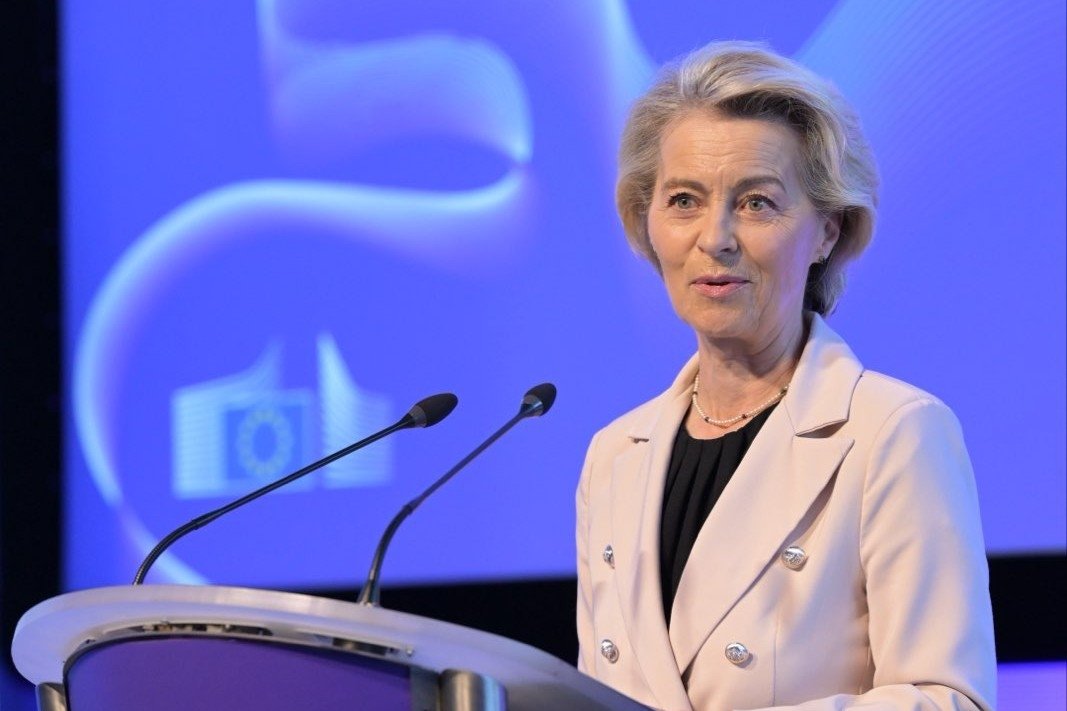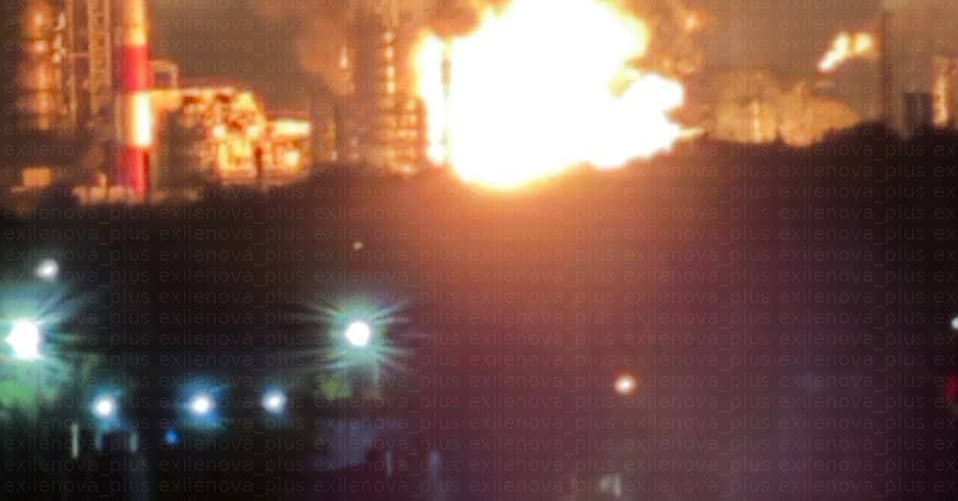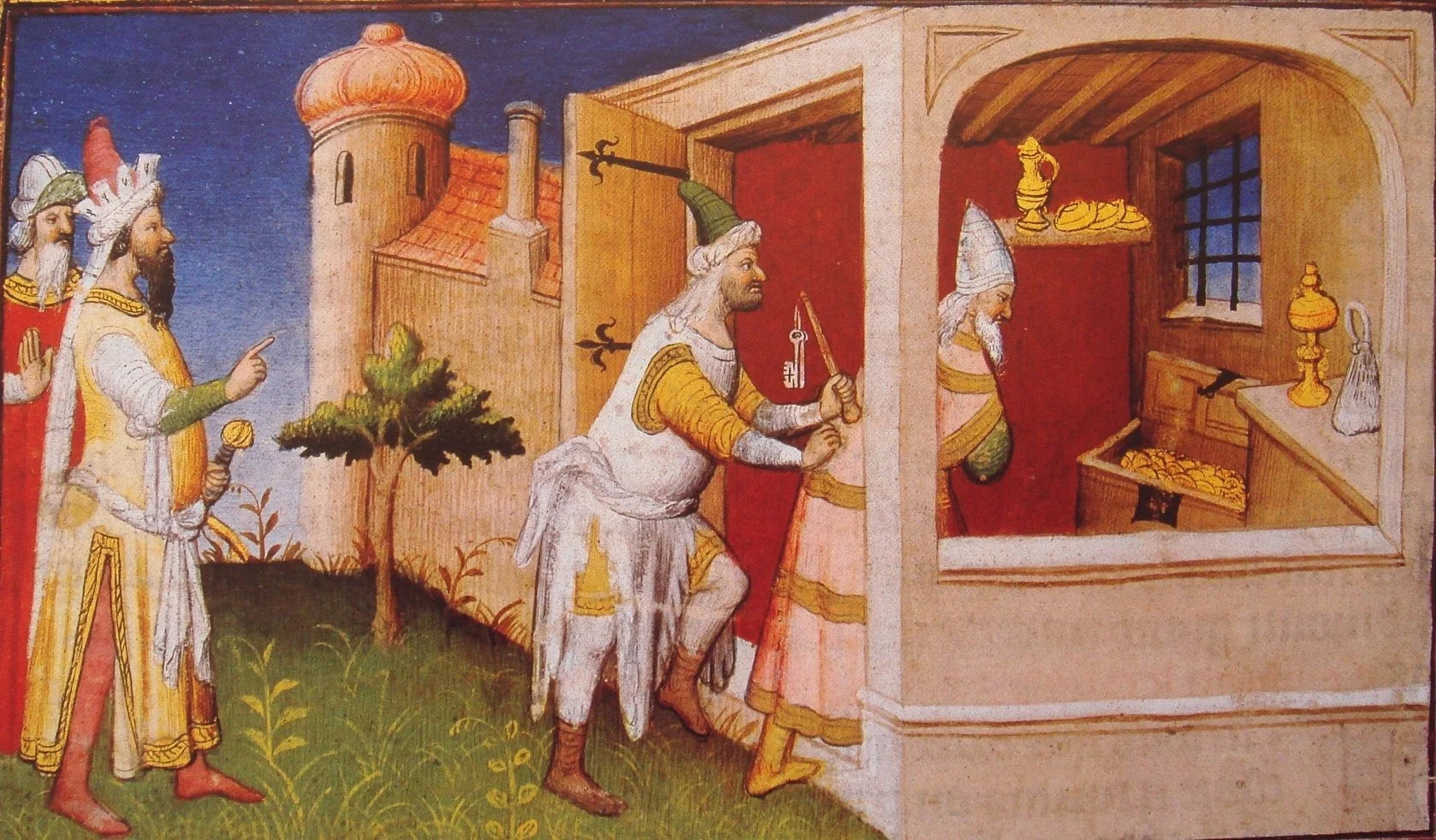Good morning,
Welcome to the subjective list of top 10 News from Russia.
Today about the production of ammunition in Russia, about oil gas and what the Tsar Vladimir Vladimirovich thinks about the state of the economy. We will besides throw in a fiasco of negotiations on rupees.
Place 10 – crucial EU gas reserves
Significant gas reserves remaining in retention after the end of the heating period can support the European energy marketplace in 2023, as reported by the global Energy Agency (IEA) quarterly report. According to his estimates, the level of reserves in Europe (magazines are filled in 55%) is importantly higher than the average in the last 5 years (35%).
The IEA reminds Europeans of the importance of implementing gas simplification plans. Judging from Eurostat data published on Thursday, this happened in 2022. After an increase of 4.3% in 2021, request for gas in the EU decreased by 2022.13% in 2022. In particular, the main consumers – Germany (15.4%), Italy (9.9%) and France (9.6%) – were able to importantly reduce it.
At the same time, full gas imports to the EU decreased by 6.6%, Eurostat records: from 24.67 million terajuli in 2021 to 23.05 million terajuli in 2022. In the last year, the share of supplier countries in European imports has besides changed (see chart): after a simplification in the share of supplies from Russia (from 24% to 15.3%) Norway strengthened its leadership (24.4%, plus 0.4 percent points). The shares of the United States (5.5 percent points), Algeria (2.7 percent points) and Qatar (2.2 percent points) besides increased, while the shares of Ukraine (5.7 percent points) and Nigeria (0.3 percent points) decreased.

However, let us note that Russia's share fell below 4% at the end of 2022 and the US is presently ranked 1 in terms of marketplace share.
The plan, approved by the European Commission in the summertime of 2022, provided for a 15% simplification in consumption from 1 August 2022 to 31 March 2023. As a result, the EU exceeded it, reaching 17.7% (see "Competerant" of 21 April). The resolution adopted by the European Union in the spring of this year sets a akin mark for a fresh longer period: from 1 April 2023 to 31 March 2024.
As estimated, Russian gas supplies to the EU will not exceed 10-20 billion m3 in 2023, which could consequence in a complete resignation from the east direction.
Place 9 – Maxim Reshetnikov calculated everything correctly for Vladimir Putin
Putin's most trusted man in Russia, the government is Minister of improvement Maksim Reshetnikov, who gives regular reports to the president and receives fresh orders.
Therefore, he publishes a shorthand from 1 specified conversation.
The author of this wonderful mythical passage for me is Andrei Kolesnikov
According to German Deutche Welle Andrei Kolesnikov* is a well-known Russian writer besides in Poland. Kolesnikov is the president of the “Russian interior Policy and Political Institutions” section at the Carnegie Moscow Center, 1 of the most valued think-tanks in Europe.
Maxim Reshetnikov did not hide the satisfaction of the state of the Russian economy.
[Maximum]– In fresh years, our economy has shown resilience to external shocks and the ability to make frequently regardless of external circumstances. This was besides the case with COVID, due to the fact that in 2020 we fell little than many another countries and recovered faster. We provided this information on slides," he said.
At this meeting, PowerPoint slides had decisive roles.
[Maximum]“Moreover, many countries have defeated COVID with very large loans, which has led to inflation accelerating on the 1 hand and, on the another hand...” the minister explained.
The president interrupted.
[Putin]– And inevitably it will should be paid for, due to the fact that the advanced level of debt in the face of rising rates, due to the fact that it is impossible not to respond to inflation either, of course! Of course, these are their challenges – he nodded with large compassion
The most crucial thing is that thank God, they have a problem not we – he added
[Maximum]– At the same time we see that we are in a very different situation: we have a much lower level of public debt, we have much lower inflation! Of the developed countries, overall, yearly inflation is presently at 1 of the lowest levels in March – 3.5%, and in April the data is now 2.6%!
[Putin]– I look, in March – 3.5% (in Russia.- AK), In Germany – 7.4, throughout the euro area – 6.9, in France – 5.7, in the USA – 5 ... – he shook the President's head with no joy. In Brazil, higher than ours. But it's sad erstwhile it comes to Brazil. Brazil deserves a better fate.
They were completely consumed with the presentation. She had full control of their imagination. After all, it was imagination that was active in their activities now before all another intellectual processes.
Vladimir Putin looked at him fatherly, with any gentle laughter in his eyes. Yes, Maxim Reshetnikov was flawless and simply good.
[Maximum] “And we have silencers,” continued the minister, “because any of the difference in inflation came from decisions taken 2 years ago erstwhile we have flexible export duties, and they prevent the transfer of global inflation to us! As a result, Mr President, our estimates of the growth rate of global economies this year... If I may, next slide!..
“And accordingly,” continued the Minister, “the growth forecast for the planet economy for 2023... We see a scope of 1.3-1.6% in developed economies – this is the IMF forecast (International Monetary Fund).- ‘Commeersant’). But our forecast is 1.2%.
It was humanly honest. Because, honestly, it's easier.
[Maximum] – “But here is the specifics of the forecast”, Maxim Reshetnikov made a reservation.- Mr President, our forecast is usually adjusted upwards.
.A Germans are going negative?! The president looked almost shocked.
Of course, the facts are stubborn. Now there was only 1 thing to understand: can they honestly survive? Do they have a chance? Or are they not people who regulation Western countries, who are weak, even due to the fact that they are human, but due to circumstances of force majeure?
And Maxim Reshetnikov outlined these circumstances in the eyes of the President. And that's what you gotta say honestly:
[Maximum] “This is inevitable,” the minister sighed, “because specified a fast energy transformation caused by the abandonment of our energy resources fundamentally undermines the foundations of many industries in Europe. Therefore, inevitably European consumers and the European economy cannot afford not to pay... It all manifests... It's their end. What we've been talking about all these years...
Place 8 — Horoscopes and talismans aid Russian home finance
When making major financial decisions, fellow citizens trust on horoscopes, talismans and lunar calendars, showed a survey of the Finuslugi platform (the Moscow Stock Exchange project). task specialists for reasons not known to me find this approach unscientific and ineffective. They are besides certain that it is essential to increase the level of financial cognition of the population. At the same time, experts called for not to blame everything for deficiency of adequate cognition among people. possibly the usage of talismans is simply a consequence of increased fear in making financial decisions, which increase during the war.
One 3rd (33%) of respondents stated that it uses horoscopes. In addition, 31% of respondents have talismans for financial prosperity – it is either a money tree or a "happy" bill to attract money or a toad with a coin in its mouth. In addition, all 5th Russian (19%) uses cash confirmation and 17% follows the lunar calendar.
A What do you usage to increase your financial security?
Place 7 – Russian military industry
Thanks to a discussion thrown out into the public sphere by Prigoshyn, all Russian kid already knows what “the famine of ammunition ” is. And it's not truly about whether the right amount of ammunition reaches the front line, it's about whether the Russian ammunition manufacture can rapidly adapt to military needs. Below are the statements by Alexey Rogozin, who led chemical factories in Aleksiński from 2012 to 2016, producing gunpowder for ammunition. As he himself speaks of the major problems of the ammunition and chemical industry, experts began talking more than 10 years ago. The Russian army, the world's largest ammunition reserves, has kept orders for fresh products from manufacture to a minimum. It was believed that reserves would last for decades. After all, Russia was not going to fight anyone. . As a result, as Alexey Rogozin writes, “no powder was produced in Alexin for 4 years and the order to defend the state was equal to zero.” Production was resumed a fewer years ago, but a large deal of effort was required to recreate production lines, train specialists, solve problems with natural materials and resume production. "Today, the Alexinsky Chemical Complex is 1 of the 3 key factories supplying gunpowder and artillery charges to the front," said Alexey Rogozin. At the same time, according to him, "the wonders do not happen and it is not possible to dramatically increase production without a extremist increase in backing and additional time". In addition to adequate funding, as Mr Rogozin pointed out, it is essential to "reduce many burdens, in peculiar the simplification of public procurement requirements". However, he notes that not everything can be produced in Russia. For example, the explosive is produced from cotton cellulose. And this ingredient, it's made of cotton, and it takes a lot. Cotton is grown in symbolic sizes of Russia, must be bought abroad, and orders must be placed at least 1 year before harvest. And that's just 1 of the nonsubjective reasons why sometimes it's very hard to dramatically increase the production of gunpowder and, consequently, ammunition. According to him, it is possible to increase production in future years but crucial changes are needed and no peculiar commissions set up will rapidly solve the "narrow throat" of the ammunition industry.
The situation is not much better erstwhile it comes to the metallurgical-military industry, which peaked at 13.5% y/y in March after an increase of 10.3% y/y in February. And let's remind you that from the beginning of the year all bets in explanation should be working 3 shifts.
However, in order to supply adequate equipment, growth would should be three-digit, which is not expected. In this area, we have 1 major military concern. Rostech, who is corrupt and has been struggling with strong stagnation and underinvestment for many years
Place 6 — Law enforcement banks halt issuing UnionPay cards
There were 7 banks in Russia whose UnionPay cards operated abroad.
MTS However, the Bank and Uralsib stopped issuing them after being subject to US blocking sanctions, 3 more credit institutions – Zenith, Petersburg and Primorye – Chinese payment strategy plastic are issued but cannot pay abroad.
In order to travel to another countries, people must apply for a abroad bank card, according to Izwiestia.
On the Telegram, Roisjans confirm that the “plastic” of Russian banks has completely ceased to operate abroad. At the same time, Gazprombank, Post Bank, Solidarity, Rossielchozbank, Russian Standard, Primsotsbank and RRDB cards are inactive in operation. However, they are not widely accepted and origin many problems.
The conclusion of UnionPay card issuance by a number of Russian banks is due to their inclusion in sanctions lists, confirmed by Valery Piven, Managing Director, head of the rating group of financial institutions in ACRA. The introduction of blocking restrictions most likely from the very beginning meant the refusal of cooperation of Chinese financial institutions with these financial organisations," the expert added.
The payment strategy fears secondary sanctions on the part of the EU and the United States, which would make it hard to service Chinese citizens abroad, claims Alexey Tarapowski, the founder of Anderida Financial Group. Therefore, the anticipation of complete cessation of cooperation with banks of the Russian Federation is not excluded.
Place 5 — The shrinking trade surplus
Russia's trade surplus with the countries of the European Union (EU) will decrease drastically in 2023 due to sanctions and forced reorientation of exports to countries in the Asia-Pacific region. Jarosław Ostrowski, a specialist in the full investigation strategical investigation Department, said this opinion in an interview with Izwiestia on Friday, May 5.
"There is simply a peculiar situation with India. This country imports tremendous amounts of Russian oil. Moreover, the volume growth trend is observed for the 3rd consecutive year. Of course, Urals oil seller accounts in Indian banks accumulate crucial sums in rupees, which are almost impossible to calculate due to the specificity of monetary regulation. expanding imports from India, paid in rupees, is besides not promising," he said.
On 4 May, Reuters, citing the source, reported the final cessation of attempts to organise a settlement between the Russian Federation and India in rupees after lengthy negotiations. The preliminary forecast of the cumulative surplus of rupees in 2023 is over USD 40 billion, the expert noted.
In 2022, the surplus in the balance of payments was advanced . In the first place, there were EU countries with a surplus of USD 137.8 billion, then Turkey US$49.5 billion, China US$38 billion, India US$31.8 billion and the United States US$13.3 billion.
It now appears that in 2023 only with India can sustain and even increase the trade surplus, in another cases a drastic decline is expected. The Central Bank estimates that in 2023 the surplus will not exceed US$60 billion, of which 60-70% will be India.
Place 4 — Authorities prepare the population for price increases
Despite record-breaking evidence low inflation, the Russian press describes further areas of the economy where prices are rising drastically.
The Ministry of economical improvement reported an increase in the price of flights in Russia on the eve of the vacation season. According to the head of the department, Maxim Rechetnikowa, the cost will increase by 10%. A akin assessment was issued the day before by FAS. But Rosstat expects twice as much price increase – by 20%.
However, Deputy Minister of Transport Igor Chalik provided the most frightening forecast of the increase in air ticket prices. In his opinion, in view of the simplification in subsidies, flights in Russia this year will increase by 30%. To date, the amount of State support previously granted to the manufacture in 2022 has not been approved. According to him, the number of flights should be reduced and prices should be skyrocketed
“I think Chalik’s point of view is most correct,” says Dmitri Yanin, president of the Board of the global Confederation of Consumer Associations. – The cost of flights depends on the exchange rate and fuel prices. Rubel became inexpensive by almost 20%. At the same time, oil companies urgently request to increase revenues in the country, as exports are not presently unprofitable. Air ticket prices will besides proceed to increase due to increased fleet operating costs for intermediate countries and the deficiency of renewal of passenger aircraft fleet.
Currently there are not many attractive destinations. If people had previously flown freely to Spain, Italy, Portugal, Malta and another resorts, now it has become much harder and much more costly due to the deficiency of direct flights. There is little competition, and reducing the choice of countries and regions for trips of Russian tourists besides contributes to higher prices, said the expert.
Increases are besides observed in the hotel industry, with prices rising from 8% to 25% for many of the most popular destinations and the most sought-after hotels sector.
Hotels rise prices not only due to inflation. The increase in prices to 20% or more for five-star hotels in Krasnodar has a limited supply: there are no more than 50. By comparison, only on 1 coast of Antalya in Turkey is about 500 hotels of a akin class. There is no specified phenomenon in the two- and three-star hotel segment, so price increases are expected in this section – around 8%
Place 3 – Blue fuel production drops all day
Last year's malicious forecasts that Europe will surely frost without Russian gas have failed. The countries of the Old planet have safely found fresh suppliers of energy resources. In turn, Russian companies, due to the failure of conventional outlets, had to importantly reduce production. So who won the gas war – sanctioned West or the wayward Moscow?
In the first 4th of 2023, gas production in our country decreased by 10% and Gazprom itself by 18%.
According to Kommersant sources, production of Gazprom decreased by 18% in the first 4th (to 117 billion cubic metres), in March besides by 18% (to 39 billion cubic metres).
LPG production decreased by almost the same value last year. The trend looks frightening and so far there is no hope to overcome the permanent shut-down of the wells. Deliveries to Europe, which until the last minute had been the main abroad sales platform, have been kept to a minimum and it is impossible to return to existing trade relations.
It is no wonder that in the light of specified circumstances, the gas manufacture is going to diverge, and gross from the natural material sector, which was previously the main donor of the state budget, has consistently decreased – in the first 4th the abroad exchange gross of the state from oil and gas exports decreased by 45% compared to the same period last year.
Russian experts indicate that Russia is in the position of “dog in a manger”. Although Russia has the richest gas reserves in the world, we simply have nowhere to sale natural materials. The pipelines to Asian countries that companies could replace European customers do not gotta complete their exports. In turn, the capacity to produce liquefied gas, thanks to which it was possible to saturate the east marketplace and compensate for the losses of western buyers, is clearly insufficient in Russia, and the improvement of this section requires crucial investments and, most importantly, a long time.
The programme to increase the level of gasification of Russian regions is equally poor. At the beginning of May Gazprom announced an increase in 2022 by 1%, which was expected to increase from 72%, to 73%
This means that national consumption can increase by an average of 3.5 billion cubic metres each year. It is improbable that specified rates will always recover the yearly decline of production by more than 100 billion cubic metres. Theoretically, 30 years would be needed and we should besides remember that with each further percent it will be harder and more costly and inactive impossible to accomplish 100%.
Place 2 — Ruble reinforcement
The reinforcement of the ruble is linked to the weakening of the outflow of capital and the increase in abroad currency sales by exporters who previously could attract national credits to pay taxes and finance the expenditure of rublow , said Igor Kuzavov, vice president of DOM.RF Bank.
In his opinion, changes in the oil marketplace presently have a lower impact on the exchange rate.
"Paradoxically a ruble can be supported by the massive closure of Russian banks' abroad correspondence accounts, leading to forced abroad currency sales," Kuzawow said
The expert suggested that the ruble course would not change in the close future. We can most likely anticipate the stableness of the Russian national currency close the current levels," he added.
However, as for the future ruble sentences are divided, Mikhail Poddubski, asset manager at MKB Investments, pointed out that the variability of ruble remains high.
"In line with our model, today's prices for Urals and the current level of key macroeconomic indicators, the balance rate of the dollar/rubel pair is at 80 rubles per dollar. Lower oil prices compared to last year led to a decrease in the current account balance in the first 4th of this year, from $69.8 billion to $18.6 billion, which is the lowest consequence for the first 4th since 2016. In the context of a decline in abroad currency flows on the current account, the impact of local flows on the financial account may be markedly higher, leading to large fluctuations," he explained.
According to data on the Moscow Stock Exchange website, at 18:15 Moscow dollar time reached 77, 18 rubles, EUR – 85, 29 rubles. On 4 May at the closing of the dollar trade was at 78, 05 rubles, euro – 86, 18 rubles.
Place 1. – Oil and gas revenues fell in April
In April, the budget gross from oil and gas fell compared to March and did not scope the base level required by the authorities to cover expenditure. Due to the deficiency of additional income expected by any analysts, the transition from buying yuan under the fiscal regulation to selling it will not yet take place.
The gross of the national budget from oil and gas amounted to 647.5 billion rubles in April, according to data published on Thursday by the Ministry of Finance. That's almost 3 times little (minus 64%) saddened than in April last year (1.798 trillion rubles) and 6% little than in weak March this year (688.2 billion rubles).
In March, according to the Ministry of Finance, oil Urals averaged only $47.85 per barrel (lowest since November 2020). A year earlier, in March 2022 Russian oil cost almost twice as much – $89.05 per barrel.
In total, in the period January-April 2023, the gross to the oil and gas budget amounted to 2,282 trillion rubles, by 52% little than a year earlier (4,772 trillion rubles). It is worth noting that in April, as in January and February, the budget did not scope the basic level of the planned gross from oil and gas (670.3 billion rubles). . The base level, as we remember, is 8 trillion rubles spread over months. yearly revenue, the minimum required to cover budgetary expenditure. The amounts above this threshold are additional gross and, in accordance with the budgetary rule, should be collected in the NWF alternatively than allocated to current needs.
But again, the Ministry of Finance is not counting on additional gross in May, but on the contrary, it is waiting for a "disappointment". Therefore, the budgetary regulation will again operate in a ‘non-standard’ direction: the Ministry of Finance will not buy but sale abroad currencies from reserves to receive the missing oil and gas rubles. On Thursday, the department announced that it would send for sale yuan worth 40.4 billion rubles – 2 billion rubles each. regular from 10 May to 6 June. However, this is almost half as much as last period (3.7 billion rubles a day).
"In the close future, we will be witnessing a serious price carousel on the commodity market," says Igor Yuszkow, an expert at the University of Finance at the government of the Russian Federation. "The fear of an expanding recession will lower prices, but OPEC+ countries will be able to counter it, reducing production. As far as the national Urals brand is concerned, it cannot besides avoid cheaping, For Russia, the situation is dramatic, because, among another things, we gotta supply customers with a reasonably large discount. If Brent's price drops to $70, Urals will be $45 per barrel. For the national budget, this is highly undesirable due to the fact that our budget assumes a cut of $70 per barrel. Everything depends on how long the period of low prices lasts, Juszkow concludes.
There is no forecast that the gas marketplace will improve in the coming months and the oil marketplace should stabilise at low levels according to Russian experts.
This may consequence in a advanced level of budget deficit and increasingly serious liquidity problems. It is increasingly urgent in the current situation to halt the war, return to negotiations and abolish at least part of the sanctions.
Remember that all articles are available first on the portal https://EconomiaRussia.pl
If the Russian press is the 1 that's sweetened you, you can bet coffee the author of the publication..
Please remember to forward this summary as a quote with your own comment. This message is for you

